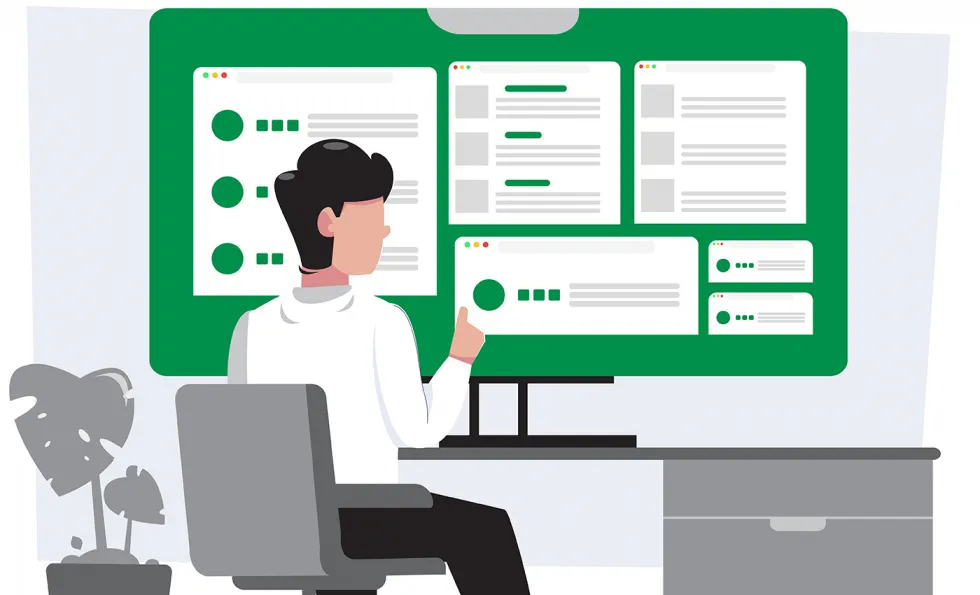By: Vivek J
September 1 2023
 Not everything on the internet can be taken at face value, and hence, learning about the source of information is crucial. (Image source: Logically Facts)
Not everything on the internet can be taken at face value, and hence, learning about the source of information is crucial. (Image source: Logically Facts)
We all know that there is an information overload. What we also know is that not everything we see online is accurate, but what we don't know (sometimes) is what to do to ensure that we don't fall for mis/disinformation.
While the answer may not be that simple, some basic techniques can make this complex situation better. For example: Lateral reading – a technique used to find out who is behind a viral claim by reading and looking for sources online laterally instead of vertically.
Confusing? Let me explain.
Lateral reading is a technique used by most fact-checkers globally to verify the veracity of the information they come across. When one reads information laterally, the person tries to seek clarity on several questions that may arise while reading information online. In simple words, a person reading laterally might open several tabs on their computer to verify information from multiple sources.
On the other hand, when a person looks for information online and reads it solely based on what is written on just one website or a link that pops up, it is called vertical reading. The individual may (or may not) make an extra effort to determine the veracity of the website from which they get the information.
Stanford History Education Group describes lateral reading as one of the best ways to learn about a website. What's equally important is to ask yourself questions before taking anything on the internet at face value.
Thinking critically will help us read laterally and decide which source is credible and what information is reliable.
Let us look at an example.
You come across a post on social media about NASA's statement on climate change. The post reads, "NASA admits climate change occurs because of change in Earth's solar orbit."
Screenshot of a June 2023 post found on X (formerly Twitter). (Source: X/Screenshot)
Now, this post comes from a profile that has a blue tick and has over three million views. It might look believable to many of us. But before taking this information at face value, one should critically evaluate it.
Screenshot of the article titled “Remember when NASA acknowledged climate change occurs because of changes in Earth's solar orbit, not because of SUVs and fossil fuels?” (Source: Sott.net/Screenshot)
So, when you ask questions, you automatically look for answers and that goes a long way in verifying information.
More from Logically Facts on media literacy: